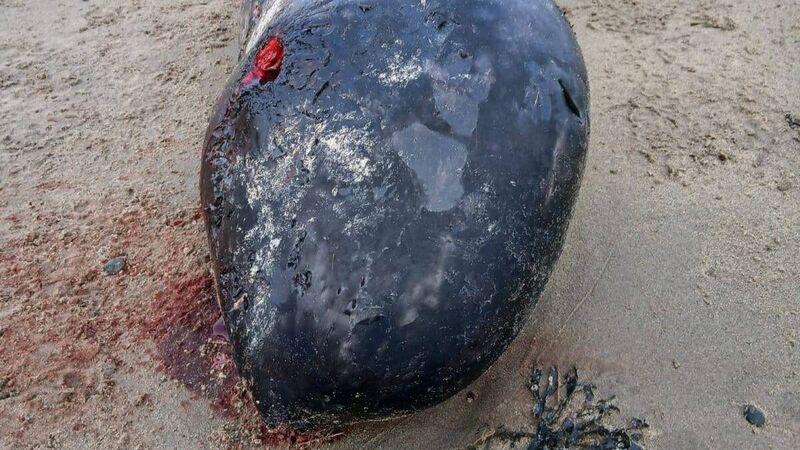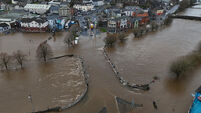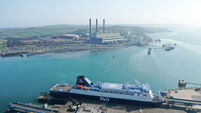Narwhal washed up on Donegal beach raises climate change concerns

Narwhal, an arctic species of whale found dead and stranded on the Donegal coastline. Picture: Irish Whale and Dolphin Group
A narwhal has washed up on a Co Donegal beach in what experts say may be a stark sign of a changing climate.
The National Parks and Wildlife Service (NPWS) confirmed on Friday that a female narwhal, a species never before recorded in Ireland, was recovered after being found on Sweet Nellies Beach on the Inishowen Peninsula.
CLIMATE & SUSTAINABILITY HUB













